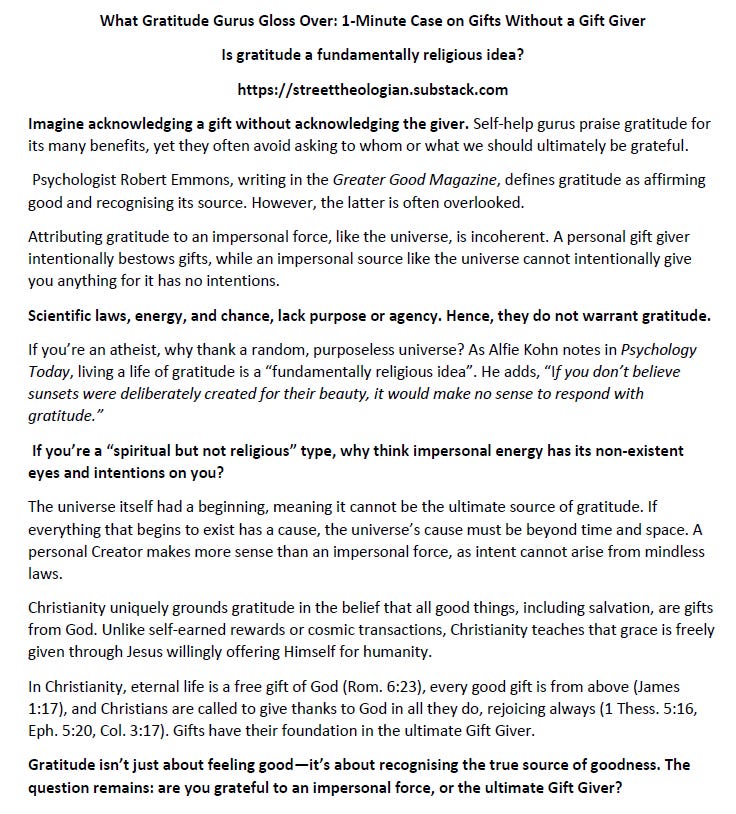What Gratitude Gurus Gloss Over: 1-Minute Case on Gifts Without a Gift Giver
Is gratitude a fundamentally religious idea?
For a more detailed discussion, read the link below:
Imagine acknowledging a gift without acknowledging the giver.
Self-help gurus praise gratitude for its many benefits, yet they often avoid asking to whom or what we should ultimately be grateful.
Psychologist Robert Emmons, writing in the Greater Good Magazine, defines gratitude as affirming good and recognising its source. However, the latter is often overlooked.
Attributing gratitude to an impersonal force, like the universe, is incoherent.
A personal gift giver intentionally bestows gifts, while an impersonal source like the universe cannot intentionally give you anything for it has no intentions.
Scientific laws, energy, and chance, lack purpose or agency. Hence, they do not warrant gratitude.
If you’re an atheist, why thank a random, purposeless universe?
As Alfie Kohn notes in Psychology Today, living a life of gratitude is a “fundamentally religious idea”. He adds, “If you don’t believe sunsets were deliberately created for their beauty, it would make no sense to respond with gratitude.”
If you’re a “spiritual but not religious” type, why think impersonal energy has its non-existent eyes and intentions on you?
The universe itself had a beginning, meaning it cannot be the ultimate source of gratitude. If everything that begins to exist has a cause, the universe’s cause must be beyond time and space. A personal Creator makes more sense than an impersonal force, as intent cannot arise from mindless laws.
Christianity uniquely grounds gratitude in the belief that all good things, including salvation, are gifts from God. Unlike self-earned rewards or cosmic transactions, Christianity teaches that grace is freely given through Jesus willingly offering Himself for humanity.
In Christianity, eternal life is a free gift of God (Rom. 6:23), every good gift is from above (James 1:17), and Christians are called to give thanks to God in all they do, rejoicing always (1 Thess. 5:16, Eph. 5:20, Col. 3:17). Gifts have their foundation in the ultimate Gift Giver.
Gratitude isn’t just about feeling good—it’s about recognising the true source of goodness. The question remains: are you grateful to an impersonal force, or the ultimate Gift Giver?
















